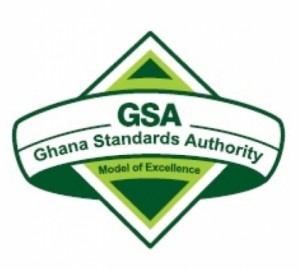GSA trains stakeholders in Food Safety Management
 The Ghana Standards Authority (GSA) is organising a two-day training on Food Safety Management for stakeholders under the West Africa Quality System Programme (WASQP) to build their capacity on quality management systems.
The Ghana Standards Authority (GSA) is organising a two-day training on Food Safety Management for stakeholders under the West Africa Quality System Programme (WASQP) to build their capacity on quality management systems.
The participants would, therefore, be trained in skills certification, food processing, auditing accounting, requirements of ISO 22000 and the HACCP-tool used to analyse associated hazards in production among other things.
The WASQP, being funded by the European Union (EU) and implemented by UNIDO, is a support programme that aim at helping implement the quality policy of ECOWAS countries.
EU is funding the third Phase of WASQP that was launched in 2015 with €12,000.00 to help organise various training sessions for quality safety personnel in the 15 member states.
The first phase of the programme was introduced in 2001 to 2005 while the second phase was launched in 2007 for a period of five years with the aim to strengthen regional economic integration and trade by creating an environment that facilitated compliance with international trade rules and technical regulation.
Mr Michael Seneyah, the Head of Standards at the Ministry of Trade and Industry (MOTI), during the opening, described the training as very strategic to help train more personnel on food safety adding “food safety is a matter of concern for all.”
He said Ghana had been facing a lot of challenges in exporting food products hence the need to build capacities of those who worked to ensure that products met required regulations and international standards.
Mr John Oppong-Otto, the WASQP National Technical Co-ordinator, said the third phase of the programme involved the strengthening of quality infrastructure for greater effectiveness, leading to enhanced competiveness and better intra and inter-regional trade participation.
He said the programme would also support the creation of quality centres of excellence and networks of specialised quality institutions such as laboratories and conformity assessment bodies to provide efficient services to local and exporting companies.
Consumers would enjoy more protection while economic development would be sustained, he said.
Mr Oppong-Otto said at the end of the training seven participants who would excel would be given further training in auditing accounting and be certified to audit food production in the country.
Mr Christian Peters, the Head of Macroeconomics and Trade Section, European Union Delegation to Ghana, said the funding of the programme was part of the EU’s commitment to promote development in Africa.
He said he was happy that the training section was focusing on food safety that would help boost Ghana’s export to the EU.
Mr Peters said last year Ghana exported over 1.4 billion Euros of products comprising canned tuna, vegetables, fruits and peanuts to the EU markets and, therefore, there was the need for such a training to inform officials on current standards to boost Ghana’s exports.
The programme would ultimately promote regional quality policy, create and harmonise standards in the ECOWAS region as well as promote peer exchange and sensitisation, Mr Peters said.
Source: GNA
